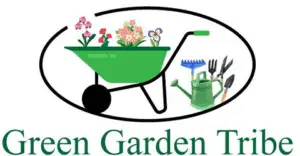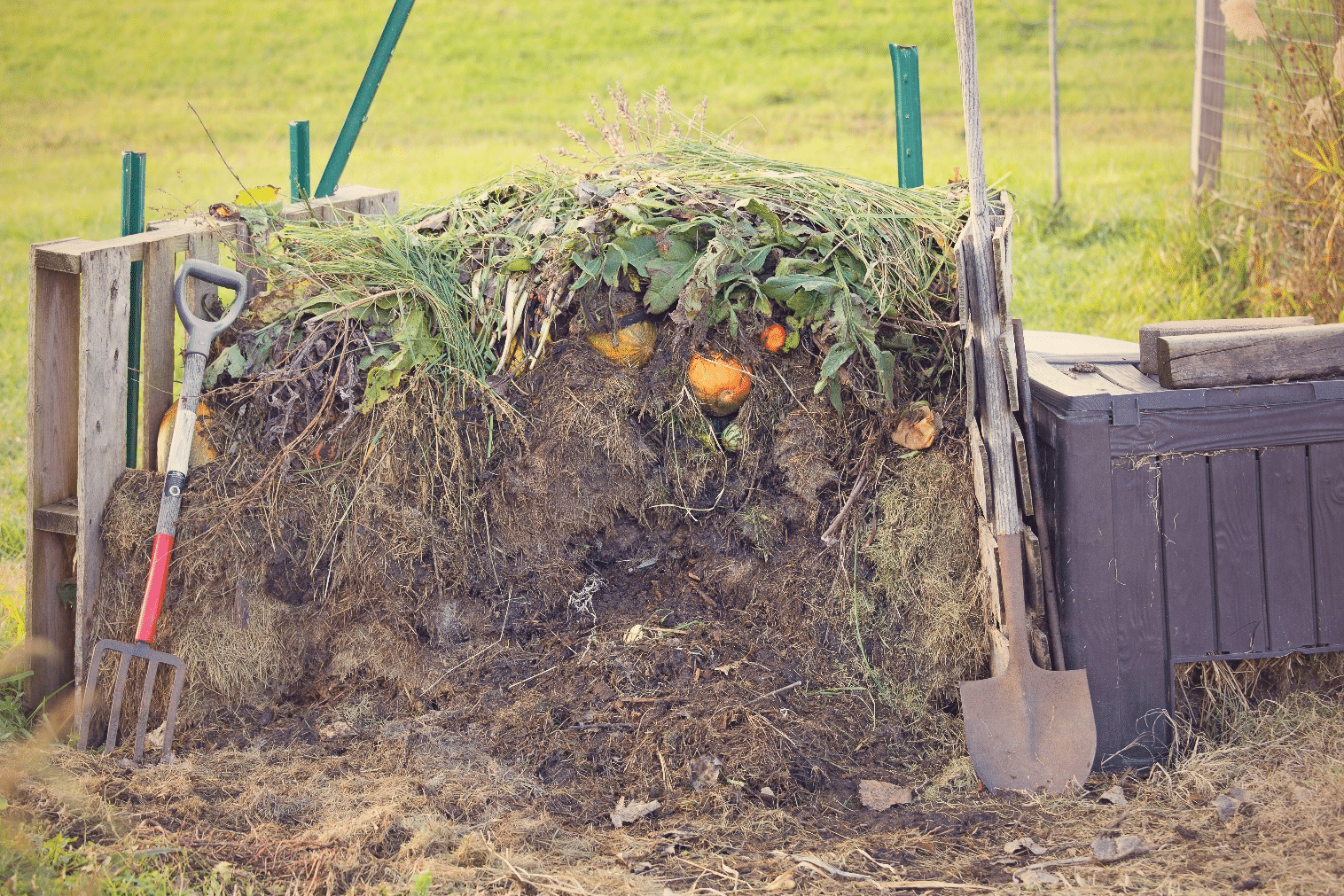Many gardeners and plant growers are hesitant to purchase and use commercial fertilizers and chemicals. These farmers like to establish and maintain a compost pile in their backyard or near the farm’s outhouse.
Using too much of any type of compost, can damage your plants and, even kill them. Plants need the extra boost of nutrients contained in compost, but when they get too many nutrients too quickly their growth spurt is too fast for their health, causing the plants to be insufficiently robust and durable. Spindly plants are frail plants that are vulnerable to both disease, preying insects, and death.
Composting may be a fun and fulfilling activity. You will be able to recycle your kitchen waste. You should get a lot of pleasure from making soil for your plants, yard, or garden. The organic stuff is extremely beneficial to your plants.
Compost provides an extra boost of nutrients to your plants. However, there are situations when too much of something can be harmful. Composting, according to some, has both advantages and disadvantages.
Is it possible for compost to damage plants?
Compost’s delayed release of nutrients aids in the growth of healthy plants. However, improperly grown compost can hurt or even kill your plants. Furthermore, too much compost can suffocate and destroy plants.
This article contains all the information you need to ensure that you correctly compost your plants, with the right compost and in the specific manner required.
What is Compost and Why Use It?
Compost is organic matter that has decomposed and is formed from things such as kitchen wastes, leaves, and shredded twigs. Gardeners swear by compost because it provides so many benefits to their plants.
An excellent way of recycling garden waste, that might otherwise wind up in landfill plastic bags; composting is also less expensive than hiring a professional to clean up and remove the dead plant matter.
Compost adds nutrients to the soil, which is one of its advantages. The amount of nutrients in it depends on how it is manufactured and what goes into it.
The NPK value of homemade compost, which is largely formed from plant material, is 3-0.5-1.5 (ref 1), while commercial manure compost has an NPK value of roughly 1-1-1.
Manure-based compost has a higher phosphorus content than other types of compost.
Gardeners give their gardens and plants a boost and provide them with all the nutrients they require by adding compost into their lifestyle. However, there is a downside to utilizing compost, as applying too much might stunt or even kill a plant’s growth.
The Dark Side of Compost
Plants require nutrients to be added to their soil. Since they consume what was previously in the topsoil of the garden or the container in which they were planted over time.
Compost may appear to be the answer because it contains natural nutrients derived from decomposed plant waste, but this is not always the case.
Many people may be surprised to learn that compost is not a fertilizer. True, it replenishes nutrients in the soil, but unlike commercial fertilizers, it does not provide plants with a ready-made source of energy.
Although compost provides some nutrients to plants, such as nitrogen and phosphorus, uncured compost can be fatal.
It may be appealing to use uncured compost generated from plant matter. But the truth is that it contains seven times the amount of phosphorus that a plant requires.
While phosphorus is necessary for plant survival, too much of it can be toxic. If the compost is made up of manure, the same thing applies.
Why Can Compost Become Deadly to Plants
While compost is an excellent source of nutrients and helps to create soil structure, too much of it, if not adequately cured, can be hazardous due to excessive phosphorus levels.
Let’s assume you follow the recommendations of the majority of the sources and apply compost to your garden every year.
Did you know that when you make your compost from primarily plant waste, the nitrogen level will be around seven times higher than the phosphorus level, which is precisely what your plants need?
The ratio of nitrogen to phosphorus is closer to 1:1 if your compost is made from manure or if you buy commercial compost that is based on waste.
In this example, once plants have used up all of the nitrogen, the majority of the phosphorus remains in the soil.
It is easy to see how adding manure-based compost at the proper nitrogen level will result in phosphorus surplus. This compost does not appear to be an ideal fertilizer for your garden.
Nitrogen and Phosphorus in Soil
In soil, what happens to nitrogen and phosphorus? Nitrogen flows swiftly through the soil and is easily washed away by rain. It can also be transformed into the gases N2 and N2O, which are both released into the atmosphere.
Excess nitrogen that isn’t needed by plants rapidly escapes the soil’s growth layer.
Phosphorus, on the other hand, moves at a pace of an inch or two each year through the soil. It is neither simply washed away, nor does it decompose into gases that escape.
Excess phosphorus builds up in the soil and stays there for the most part.
Even plant-based compost will result in a buildup of phosphorus due to the differing ways nitrogen and phosphorus flow through the soil. If this is done every year, the phosphorus levels in the ground will steadily rise until they reach dangerous levels.
The Problem with High Phosphorus Levels
For the reason that high phosphorus levels make it difficult for plants to absorb manganese and iron. Shortages develop, leading chlorophyll in the leaves to escape the veins and become stranded on the outside.
Either too much phosphorus or too much iron might cause this. Adding compost to the mix will just exacerbate the situation and eventually kill the plant.
High phosphorus levels are hazardous to mycorrhizal fungi, i.e. essential elements of the plant microbiome.
They provide phosphorus, water, and nutrients to the plant. Without this vital fungus, plants must expend more energy to survive, resulting in more extensive root systems.
Other than plant development challenges, having excessive P levels in your soil might create complications if it gets into waterways.
It has the potential to hasten eutrophication, which is the nutrient enrichment of surface water that leads to problematic algae growth.
When an algal bloom dies, it decomposes, depleting the oxygen in the water, resulting in the death of fish and other species.
Phosphorus is a perplexing component in that it is an essential nutrient, is non-toxic, and has poor permeability. Still, it can have harmful impacts on water quality at meager amounts.
The leaching of soluble P from soils is usually not a concern because P is generally locked up, but if soil particles are transferred to a river or lake, P is found in the sediment.
You Can have Too Much Compost
Compost is a provider of rich nutrients and improves soil fertility, both of which are beneficial to plants.
However, too much compost might be harmful. This is true for both manure-based and plant-based compost, although manure-based compost, when used in excess, is the worst.
By weight, native topsoil comprises roughly 5% organic matter (10 per cent by volume). More than this will start to cause difficulties for plants by giving excessive nutrient levels.
As a result, plants grow too quickly and produce insufficient natural pesticides, increasing pests and diseases.
If you utilize compost, plant-based compost is preferable to manure-based compost because the former contains less phosphorus.
Final Thoughts
In the end, though, compost can be beneficial to gardeners. However, if not properly cured, too much of it can damage plants and harm humans.
Again, if you are going to utilize compost, plant-based compost is preferable to manure-based compost because the former contains less phosphorus.
Jenny Marie
Tribal Writer
Edited By
Patricia Godwin

